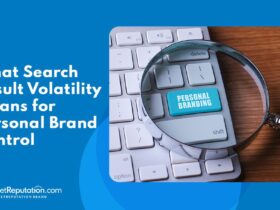At Reputation Return, we know how hard online defamation can hit. It affects both individuals and businesses deeply. We help protect and restore online reputations, especially from smear campaigns and abuse by narcissists. We also offer a free confidential consultation to talk about your situation.
Online defamation can really hurt a person’s reputation and life. It can damage relationships and future plans, even if the claims are later found to be false. The Internet makes this harm worse, letting anyone cause damage worldwide. Courts now often include emotional distress damages in defamation cases, showing how much it affects mental health.
Key Takeaways
- Online defamation can have a profound emotional impact, leading to anxiety, depression, and other mental health issues.
- Emotional distress damages can play a significant role in defamation cases, highlighting the legal recognition of the harm caused.
- Reputation Return offers comprehensive solutions to help individuals and businesses recover from the emotional aftermath of online attacks.
- A free confidential consultation is available to discuss your specific needs and develop a tailored strategy for emotional recovery and reputation restoration.
- Seeking professional support and legal advice is crucial in navigating the complexities of online defamation and its impact on mental well-being.
Understanding the Impact of Online Defamation on Mental Health
Online defamation can hurt more than just your reputation. It can cause serious emotional pain and emotional distress damages. These effects can deeply affect your mental health and overall happiness.
Recognizing Common Emotional Responses
People who face online defamation often feel very anxious and depressed. They might also feel agitated, want to hide away, or have trouble focusing. These feelings come from the body’s stress response and how they think about the situation.
Physical and Psychological Effects
Online defamation can lead to serious physical and mental problems. These include panic attacks, PTSD, and even memory loss. Such issues can make it hard to live a normal life, affecting work and personal relationships.
Social and Professional Consequences
Online defamation can also harm your social and work life. You might lose your job, struggle with relationships, or feel less about yourself. This makes the emotional distress damages even worse.
It’s important to get help from doctors, especially psychiatrists and psychologists. They can help prove the emotional harm caused by online attacks. Medical records and visits can be key evidence of how it affects your mental health.
Emotional Recovery After Defamation: Building Resilience
Recovering from online defamation is key to moving forward. At Reputation Return, we know how hard digital attacks can hit your mental health. We focus on teaching coping skills and emotional recovery strategies.
Building resilience means facing the emotional toll of defamation. It’s about separating facts from feelings and growing personally. Mindfulness, cognitive-behavioral techniques, and a strong support network are crucial. Recovery is a journey with ups and downs, and we’re here to help you through it.
“Skilled attention towards emotional well-being for individuals going through reputation crises is not common, but it is essential for true healing,” says Jennifer Cunningham, founder of Oxygen Coaching. “Our mission is to accelerate the healing process, empowering clients to rediscover themselves and emerge stronger than before.”
Emotional recovery helps you beat the effects of online defamation and take back your online identity. The path to resilience is not easy, but with the right support and guidance, it is achievable.
Recognizing Toxic Behavior
It’s vital to spot and steer clear of toxic people online. They might stir up drama, spread rumors, act erratically, show no empathy, and always blame others. If you encounter such behavior, stop talking to them, ask for defamatory content to be taken down, and, if needed, call the police.
Strategies for Resilience
- Prioritize personal safety and well-being
- Document all threats and communications for evidence
- Recognize warning signs of toxic behavior in potential business partners
- Establish clear boundaries and expectations in business relationships
- Focus on meaningful solutions rather than addressing every accusation
By using these strategies and building resilience, you can beat online defamation. You’ll regain your online presence with confidence and truth.
Legal Steps to Combat Online Defamation
Dealing with online defamation can be tough in today’s digital world. But, taking legal action is key to protect your reputation and rights. Start by [https://online-reputation-management-agency.com/how-your-online-reputation-can-change-your-career-bright-past/ documenting and collecting evidence] of the defamatory content.
Documentation and Evidence Collection
It’s important to capture screenshots, save posts, and record all defamatory content. This evidence is crucial for a strong case. Keeping a digital record is vital, as attackers might try to delete the content later.
Working with Defamation Attorneys
Getting help from defamation attorneys can greatly help your case. They know defamation law well and can issue cease-and-desist orders. They also help remove content from platforms and guide you on the best steps.
Understanding Your Legal Rights
To win a defamation case, you must prove several things. You need to show the statement was false, caused harm, and was made with malice or carelessness. Knowing your legal rights helps build a strong case and increases your chances of winning.
“Ignoring cyber-smearing can have negative financial and reputational implications, making it essential to address online attacks promptly with legal assistance.”
Combating online defamation needs a thorough plan. Document evidence, work with defamation attorneys, and understand your rights. This way, you can defend your reputation and get the justice you deserve.
Professional Support Systems for Recovery
Dealing with online defamation can really affect your mental health. At Reputation Return, we know how important support is. Our services help fix and protect your online image, making sure it shows who you really are.
We also suggest getting help from mental health experts. They can teach you how to deal with the emotional side of defamation. They offer strategies and support to help you feel better and take back control of your life.
Working with our team, you can create a plan to improve your online image. We use many strategies to help you regain your reputation. Our goal is to make sure your online story is true and positive.
| Service | Description | Key Benefits |
|---|---|---|
| Reputation Management | Comprehensive services to rebuild and protect your online presence |
|
| Professional Counseling | Therapeutic support to address the psychological effects of defamation |
|
| Recovery Support | Comprehensive approach combining digital and mental health services |
|
At Reputation Return, we offer a full support system for those facing online defamation. We use our reputation management skills and mental health advice to help you. This way, you can take back your online and emotional space.
“Seeking professional support is a crucial step in the recovery process after experiencing online defamation. The integration of reputation management and mental health services can be a game-changer in restoring one’s well-being and sense of control.”
Rebuilding Your Digital Presence
Rebuilding your digital presence after online defamation is key. It’s about managing your content and using techniques to improve your reputation. This way, you can take back control of your online story and win back your audience’s trust.
Content Management Strategies
Creating and sharing positive, real content is vital. Make sure your website, blog, and social media show your true self or brand. Share your skills, successes, and good customer feedback often. This can help move negative content down in search results and improve your reputation.
Reputation Rehabilitation Techniques
Using SEO optimization can boost your online presence. It helps push negative content down in search results. Also, engage with your online community, answer reviews, and connect with industry leaders to fix your reputation.
Social Media Recovery Plan
Having a solid social media plan is essential. Work on rebuilding trust with your followers. Be positive and engage well with them. Manage your online interactions wisely. Stay away from defensive or confrontational posts. Use social media for feedback, service, and building a positive brand image.
Rebuilding your digital presence after online defamation takes time and effort. Use content management, reputation building, and a good social media plan. This way, you can take back your online story and come out stronger.
Establishing Boundaries and Self-Protection Measures
Recovering from online defamation is more than just legal action. It’s about setting clear boundaries and protecting yourself online. At Reputation Return, we help our clients do this to protect their digital presence and emotional health.
Being careful with personal info online is key. After a defamation attack, share less on social media and digital channels. Changing privacy settings helps control who sees your info, lowering the risk of more harm.
It’s also important to not let online negativity get to you. Feeling hurt is normal, but remember, your online reputation matters. We tell our clients to focus on the real-world effects, not just the online attacks.
Protecting yourself means watching your digital footprint and knowing when to step back. Sometimes, not engaging is as crucial as taking legal action. By setting boundaries and focusing on your well-being, you start to heal and take back your online space.
“Establishing clear boundaries and implementing self-protection measures are crucial steps in recovering from online defamation and preventing future attacks.”
At Reputation Return, we know how hard online defamation can be. That’s why we create a detailed plan for online boundaries, self-protection, and digital safety with our clients. Together, we aim to help you regain control of your online image and move forward with confidence.
Healing Through Community and Support Networks
Recovering from online defamation takes strength and support from a community. Support groups offer a place to share experiences and find camaraderie. This can bring valuable validation and healing.
Finding Support Groups
Connecting with others who know the challenges of online reputation damage helps. These groups, online or in-person, provide a safe space. Here, people can share, learn, and find ways to cope.
Professional Counseling Options
Professional counseling is also key in emotional recovery. Therapists who specialize in trauma and reputation management offer support. They provide advice and techniques to deal with defamation’s psychological effects.
Family and Friend Support Systems
Family and friends are crucial in emotional healing. They offer a listening ear and practical help. Keeping these relationships strong can be a powerful source of comfort and resilience.
FAQ
What is the emotional impact of online defamation?
Online defamation can severely harm a person’s reputation and future. It can also damage their relationships and livelihood. The Internet’s power makes it easy for anyone to cause harm worldwide.
Emotional distress damages are now a key part of defamation cases. This shows how much online defamation affects mental health.
What are the common emotional responses to online defamation?
People often feel anxious, depressed, or even have obsessive thoughts. They might become agitated or withdraw from social interactions. Physical and mental health can suffer greatly.
Some may experience panic attacks, PTSD, or even forget things temporarily.
How can individuals build resilience after experiencing online defamation?
Building resilience is key to recovering from defamation. It means acknowledging the harm and separating facts from emotions. Focusing on personal growth is also important.
Techniques like mindfulness and cognitive-behavioral strategies can help. Having a strong support network is also crucial.
What are the legal steps to combat online defamation?
First, document and gather evidence. Save screenshots and record defamatory content. This builds a strong case.
Working with experienced defamation attorneys is also vital. They can guide you through the legal process and improve your chances of success.
How can professional support systems aid in the recovery process?
Professional support is essential for recovering from online defamation. Reputation management services can help rebuild your online image. Professional counseling addresses the psychological effects of defamation.
What strategies can be used to rebuild a digital presence after online defamation?
Rebuilding your digital presence is a crucial step. Use content management and reputation rehabilitation strategies. Create a social media plan to regain trust and push down negative content.
How can individuals establish boundaries and self-protection measures?
Setting clear boundaries and protecting yourself is vital. Be cautious about sharing personal info online. Adjust your social media privacy settings and be mindful of your digital footprint.
What role do support networks play in the healing process?
Support networks are crucial for healing from online defamation. Look for support groups and professional counseling. Nurture your family and friend relationships for emotional and practical support.















